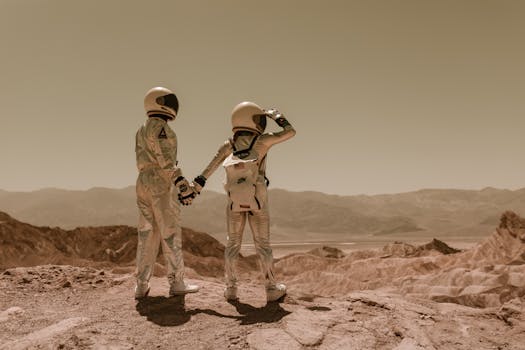
Space Odyssey: The Latest Breakthroughs That Are Expanding Our Cosmic Horizons
Introduction to Space Odyssey
Space Odyssey: The Latest Breakthroughs That Are Expanding Our Cosmic Horizons. Space exploration has been a cornerstone of human advancement, driving innovation and pushing the boundaries of what we thought was possible. From the early days of NASA’s Apollo missions to the current era of private space companies like SpaceX, the pursuit of space travel and discovery has captivated the imagination of people around the world. In this article, we will delve into the latest breakthroughs that are expanding our cosmic horizons and explore the future of space exploration.
Recent Breakthroughs in Space Exploration
Recent years have seen a surge in space exploration, with numerous breakthroughs that have significantly advanced our understanding of the universe. Some of the most notable recent breakthroughs include the discovery of exoplanets, the detection of gravitational waves, and the development of reusable rockets. These advancements have paved the way for further exploration and have raised hopes of one day establishing a human settlement on another planet.
The discovery of exoplanets, in particular, has been a significant breakthrough in space exploration. With the help of advanced telescopes and spacecraft, scientists have discovered thousands of exoplanets, some of which are believed to be capable of supporting life. This has raised hopes of finding life beyond Earth and has sparked a new wave of research into the possibility of extraterrestrial life.
Advances in Space Technology
Advances in space technology have been a key driver of the recent breakthroughs in space exploration. The development of reusable rockets, for example, has significantly reduced the cost of accessing space and has made it possible for private companies to launch their own spacecraft. Other advances, such as the development of advanced life support systems and the creation of new materials, have also played a crucial role in enabling longer and more complex space missions.
The use of artificial intelligence and machine learning has also become increasingly important in space exploration. These technologies have enabled scientists to analyze large amounts of data and have facilitated the development of autonomous spacecraft that can navigate and make decisions independently. As the amount of data generated by space missions continues to grow, the use of AI and machine learning will become even more critical to the success of space exploration.
Future of Space Exploration
As we look to the future of space exploration, it is clear that there are many exciting developments on the horizon. From the planned return of humans to the Moon to the potential for establishing a human settlement on Mars, the next few decades are likely to be marked by significant advancements in space travel and discovery. Private companies, such as SpaceX and Blue Origin, are also playing an increasingly important role in space exploration, with plans to establish permanent human settlements on the Moon and Mars.
However, despite the many advances that have been made, there are still many challenges that must be overcome before we can realize our goals for space exploration. Radiation exposure, for example, remains a significant concern for deep space missions, and the development of effective countermeasures will be critical to ensuring the safety of astronauts. Additionally, the psychological effects of long-duration spaceflight must also be carefully considered and addressed.



